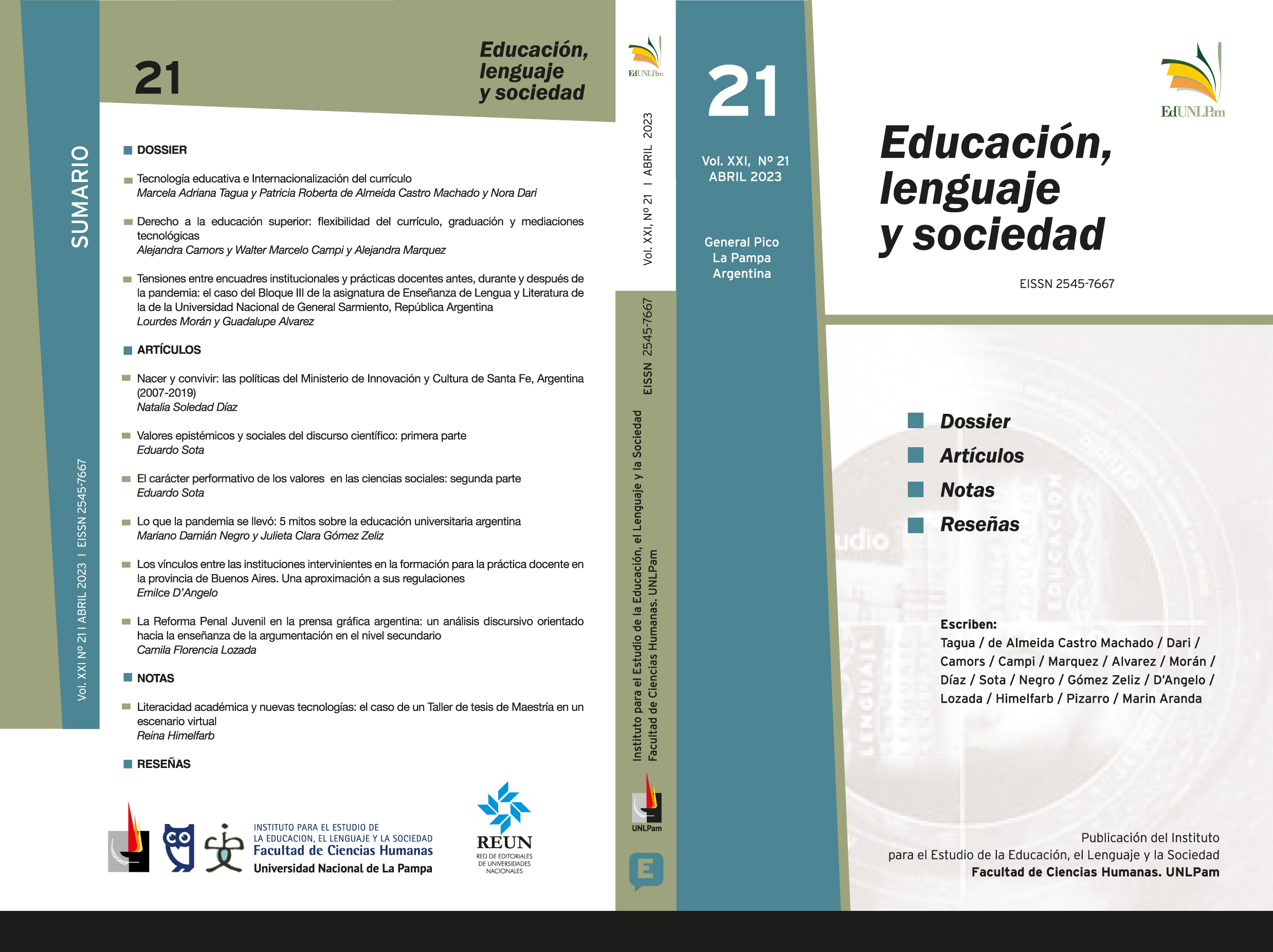The Criminal Juvenile Reform in the argentinian written press: a discourse analysis oriented towards the teaching of argumentation in secondary school
Keywords:
secondary teaching, discourse, periodical press, linguistics, mother tongue teachingAbstract
In recent years, the topics of insecurity, juvenile delinquency and criminal responsibility of minors appeared in numerous times at the written press in Argentina through diverse genres such as the newspaper article, the report, the opinion article or the editorial.
In this paper, which takes part in a wider research carried out under the direction of Mg. Claudia Gaiotti in the framework of the Diplomatura en Ciencias del Lenguaje (I.S.P. “Dr. Joaquín V. González”), we propose a discursive approach of an opinion article about the Juvenile Justice Reform Project in Argentina, recently published in a national print media, from the francophone Discourse Analysis perspective. To accomplish this, we focus on the discursive analysis of the concessive argumentative connectives. We propose as a hypothesis that the concession introduced by argumentative connectives constitutes a discursive
marker through which it is possible to recognize the locutor identities and the alterity voices. In other words, in the analysed article, the argumentative connectives related to the concession could be interpreted as a polyphonic-dialogical marker. As a continuation of this discursive analysis, we elaborate a pedagogical material oriented towards the teaching of the argumentation as a way of discourse organization at the secondary school subject Language
and Literature. In this way, this article presents a dual objective: to characterize the discursive functioning of the concessive argumentative connectives and to elaborate a pedagogical projection of such issue dedicated to the secondary level.
analysed article, the argumentative connectives related to






21.png)







